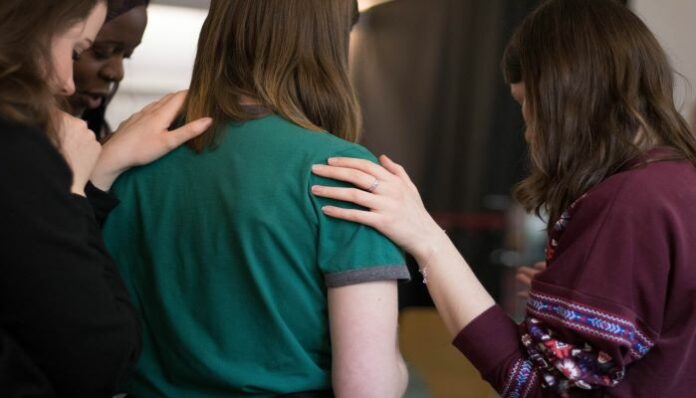
Addiction is a big problem in America, so there are many 12-step programs. Whether you need help with a drinking problem, can’t seem to stop gambling, or have hurt others with your sexual behavior, there’s a 12-step group for your addiction. Here’s more information about how 12-step programs work:
What counts as a 12-step program?
Many 12-step group meetings are a way for members to connect, share experiences, and offer solutions to living life without indulging in destructive past habits. The only fundamental requirement for all of these groups is quitting whichever behavior is the focus of your program. In most cases, membership is free.
The “12-step” part of these programs involves a set of spiritual steps that you take in order to create mental, physical, and spiritual change. One of the first support groups for substances, Alcoholics Anonymous, created the 12 steps that many other programs have adopted.
Every program that utilizes the 12 steps will mostly use the same steps — only changing the words to reflect the purpose of the specific group.
Steps one through three involve acceptance that addiction engulfed your life and that surrendering to a “higher power” can help you overcome your addiction. A higher power doesn’t have to be a religious figure — it can be a spiritual sense of anything that’s bigger than yourself.
Steps four through nine are considered “action steps,” in which you’ll take a moral inventory and have a deep look at your past and present behavior. This can help you accept what happened to you and take responsibility for your actions. In these steps, you may make amends to those you may have hurt when you were in your addiction.
Steps 10 through 12 involve making a declaration to continue practicing spiritual practices and to help newcomers begin the steps. These last steps are vital in keeping members connected to the program and promoting lifelong abstinence.
Members usually work the steps with a sponsor — a long-standing member of the group with many years of abstinence.
What are some typical 12-Step programs?
There are many groups that use 12-step facilitation therapy to help people recover from various types of addiction. These programs hold meetings almost every hour of the day, both in person and online.
Some 12-step groups are:
- Alcoholics Anonymous: For those who struggle to drink moderately. This group sparked the idea that working together, applying spiritual principles, and staying sober can help people with addiction recover.
- Narcotics Anonymous: For those whose addictions involve drugs. This group closely follows the principles of AA. There are also groups specific to certain drug addictions, like cocaine anonymous, crystal meth anonymous, and marijuana anonymous.
- Sex Addicts Anonymous: For those who struggle to control their sexual behavior. In most cases, this group doesn’t advocate for complete sexual abstinence but instead strives to help members refrain from certain behaviors, like compulsive masturbation, infidelity, or violent fetishes.
- Gamblers Anonymous: For those whose gambling has gotten out of control. People in this group refer to each other as 0compulsive gamblers,” and it also follows the principles AA set forth.
- Overeaters Anonymous: For those with eating disorders and body image issues. Members create action plans to help curb emotional eating and unhealthy eating behavior and stay physically active in safe ways.
- Al-Anon: A group for those who have loved ones with substance use disorders. Members learn how not to blame themselves for their loved one’s behavior. A subsection of this group, Alateen, is for teens who have family members or friends with substance use disorders.
If you struggle in any of these areas, 12-step programs may be a good fit for you. Think about whether or not you’re open to the spiritual aspect of the steps and how committed you feel to addiction recovery. Starting a 12-step program may be the first step in freeing yourself from your addiction.
Featured Photo by Rosie Sun on Unsplash.


















